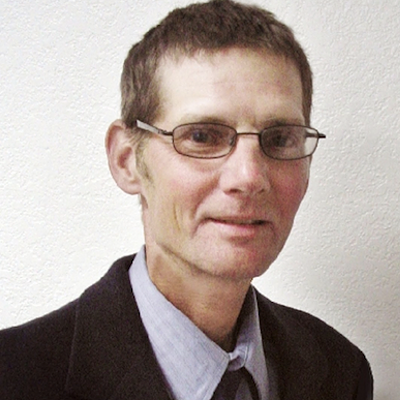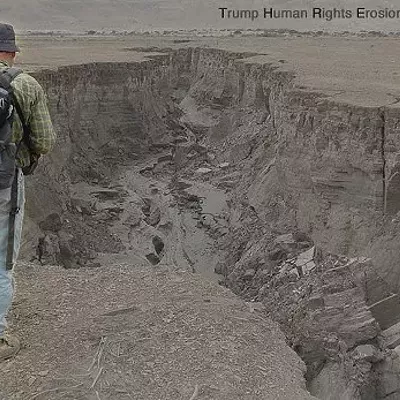Ater is among the millions of Sudanese refugees who were forced to abandon their homeland because of a government-supported genocide that has killed hundreds of thousands of people.
Ater was happy to see Gov. Janet Napolitano sign a bill last week to divest Arizona pension funds from Sudan. The new law will force the state to pull any investments from corporations that fund the Sudanese government--which is supporting the mass genocide in Darfur and southern Sudan--provided the divestment doesn't significantly affect the state's financial portfolio.
HB 2705, supported by all 90 state lawmakers, also prohibits the state from contracting with companies that support genocide in Sudan. The state has yet to determine the financial effects of the new law.
Rep. Kyrsten Sinema, a Phoenix Democrat representing District 15, says she was inspired to introduce the legislation after she met a number of "Lost Boys"--a generation of Sudanese children who were driven from their native villages in the late 1980s by the threat of genocide--as a social worker in the Phoenix-area Sunnyslope community. She has spent about 10 months working on events during which she informed people about Darfur and Sudanese civilian genocide.
Sinema said the bill is much different from standard divestment laws.
The targeted corporations of the divestment plan include oil companies, weapon-sales companies and mining companies, most of which generate profits for the Sudan government, which allows the regime to continue the ongoing genocide, Sinema said.
"We wanted to support companies that are doing good things in Sudan like agricultural and local commercial projects," Sinema said. "We only wanted to divest from companies knowingly engaged in bad behavior."
National organizations focused on divestment laws, such as the Sudan Divestment Task Force, helped Sinema craft the bill. Director Adam Sterling said the bill will set a precedent for the rest of the nation.
"Sudan's government responds to economic pressure," Sterling said. "Arizona is the first state this year to adopt Sudan legislation and the only state to adopt a contract-prohibition legislation. It will ignite the rest of the country in divestment-law planning."
The passage of the divestment bill was good news to Ater, who was one of the thousands of Lost Boys who had to trek on foot across the scathing desert to Ethiopia with almost no food and water. Each day, he would wake up and continue walking until dark.
"We didn't know where we were going," Ater said. "We didn't know who led the way."
War in Ethiopia forced Ater and those who had not succumbed to the heat or starvation to flee once again in 1992. Thousands of his companions perished during a five-month trek to Kenya, falling victim to drowning, exposure to the elements or attacks by lions and crocodiles.
Ater spent the next decade at a refugee camp in Kenya, where he received a high school-level diploma. Ater came to the states in 2001 and immediately began course work at the UA while maintaining a job at Costco. Now a U.S. citizen, he graduated from the UA with a degree in public health in 2006 and is on his way toward completing a master's program in public health and policy management.
Ater is also launching the Deng Ater Foundation, a small organization with big ideas to build schools in Southern Sudan for children. The foundation seeks to educate Sudanese children ages K-12, where the effects of two back-to-back civil wars have left the country with high poverty and illiteracy rates, Ater said.
The Deng Ater Foundation received approval as a recognized nonprofit charitable organization in January, and Ater and co-founder Donald Deins fully intend on raising the money needed to start construction on a school in southern Sudan as soon as possible. "This bill will help me build schools in Sudan," Ater said. "It is good that people realize what is going on and are doing something about it."









